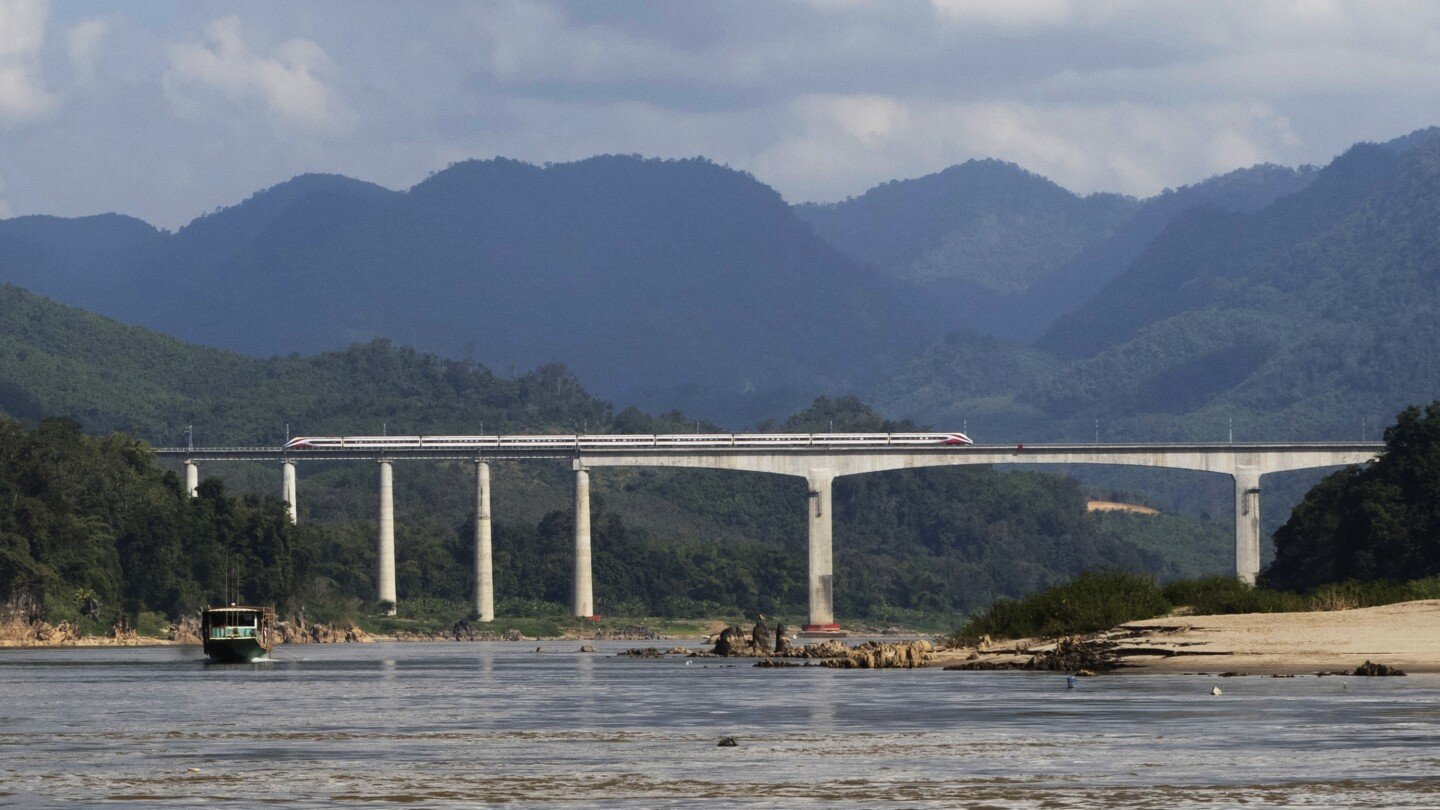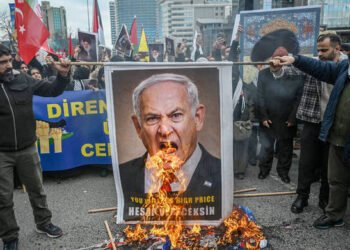BANGKOK (news agencies) — Simmering tensions in the South China Sea between China and several Southeast Asian nations now regularly spark direct confrontation. Fighting in Myanmar against the military government that seized power three years ago has grown to the point that most say the country is now in a civil war.
Hopes were high that Indonesia might be able to make significant inroads on both issues during its 2023 chairmanship of the Association of Southeast Asian Nations, using its clout as the bloc’s largest country, but little progress was made. Now Laos, the bloc’s poorest and one of its smallest countries, has taken over the rotating chair.
As foreign ministers gather in Luang Prabang for this year’s first top-level meetings over the weekend, many are pessimistic that ASEAN can keep its biggest challenges from festering and growing.
“There were so many expectations when Indonesia started its presidency and some of those expectations fell short,” said Shafiah Muhibat, an expert with the Centre for Strategic and International Studies in Indonesia.
“So with Indonesia moving on to Laos, I think the expectations are quite low in terms of what Laos can actually do.”
After the military seized control of Myanmar in February 2021 from the democratically elected government of Aung San Suu Kyi, ASEAN — comprised of Indonesia, Thailand, Singapore, the Philippines, Vietnam, Malaysia, Myanmar, Cambodia, Brunei and Laos — came up with a “Five-Point Consensus” plan for peace.
The military leadership in Myanmar has so far ignored the plan. At the same time, a humanitarian crisis is growing, with more than 2.6 million people forced from their homes due to escalating violence, according to the United Nations.
Indonesia, despite touting more than 180 “engagements” with stakeholders in Myanmar, was unable to achieve a breakthrough.
ASEAN’s plan calls for the immediate cessation of violence, a dialogue among all concerned parties, mediation by an ASEAN special envoy, provision of humanitarian aid through ASEAN channels, and a visit to Myanmar by the special envoy to meet all concerned parties.
“ASEAN actually has very little leverage on Myanmar; Myanmar doesn’t care about ASEAN at all,” said Muhammad Faizal, with the Institute of Defense and Strategic studies at the S. Rajaratnam School of International Studies in Singapore. “They don’t give a hoot about the five-point consensus.”
During its ASEAN chairmanship, Indonesia established an official office of the special envoy, increasing the resources for the position, and the veteran Laotian diplomat who assumed the role has already been to Myanmar and met with the head of the ruling military council and other top officials. To ensure continuity in dealing with Myanmar, Indonesia also established a troika mechanism made up of the past, current and next chair of ASEAN — currently Indonesia, Laos and Malaysia.
The troika will provide “capacity and support” for Laos during its year as chair, meaning the country won’t have to go it alone, said Peter Haymond, former United States Ambassador to Laos from 2020 to 2023 who is now with the Asia-Pacific Center for Security Studies in Hawaii.
“ASEAN only really carries weight if it’s able to speak as one group … so this troika is put together specifically by the ASEAN partners with Lao concurrence,” he said on the Center for Strategic and International Studies’ Southeast Asia Radio podcast in November.
“I think Lao was looking for help.”
Still, it’s likely Laos will approach the situation in Myanmar from its own perspective as the first ASEAN nation since the military takeover to share a border with the country, Faizal said.
“They want to maintain the cross-border security cooperation with the Myanmar junta, and think that it is probably in their interest to make sure that the junta remains the authority in Myanmar. Though, in reality, that may not be the case,” he said in a telephone interview.
At the moment, the Myanmar military is losing ground to a concerted offensive launched in October by three powerful militias that have since been joined by several others around the country.
China is seen to be at least tacitly supporting the initial group, known as the Three Brotherhood Alliance, stemming partially from Beijing’s growing irritation at the flourishing drug trade and other criminality across its border with Myanmar. It also has strong influence with the country’s military rulers.
Communist Laos is one of the ASEAN countries with the closest ties to Beijing, so it will be interesting to see whether it tries to enlist Chinese support in resolving the Myanmar conflict, Faizal said.
“It’s quite obvious that both the junta and the other groups are trying to gain the support or the favor of China,” Faizal said.









 United Arab Emirates Dirham Exchange Rate
United Arab Emirates Dirham Exchange Rate

